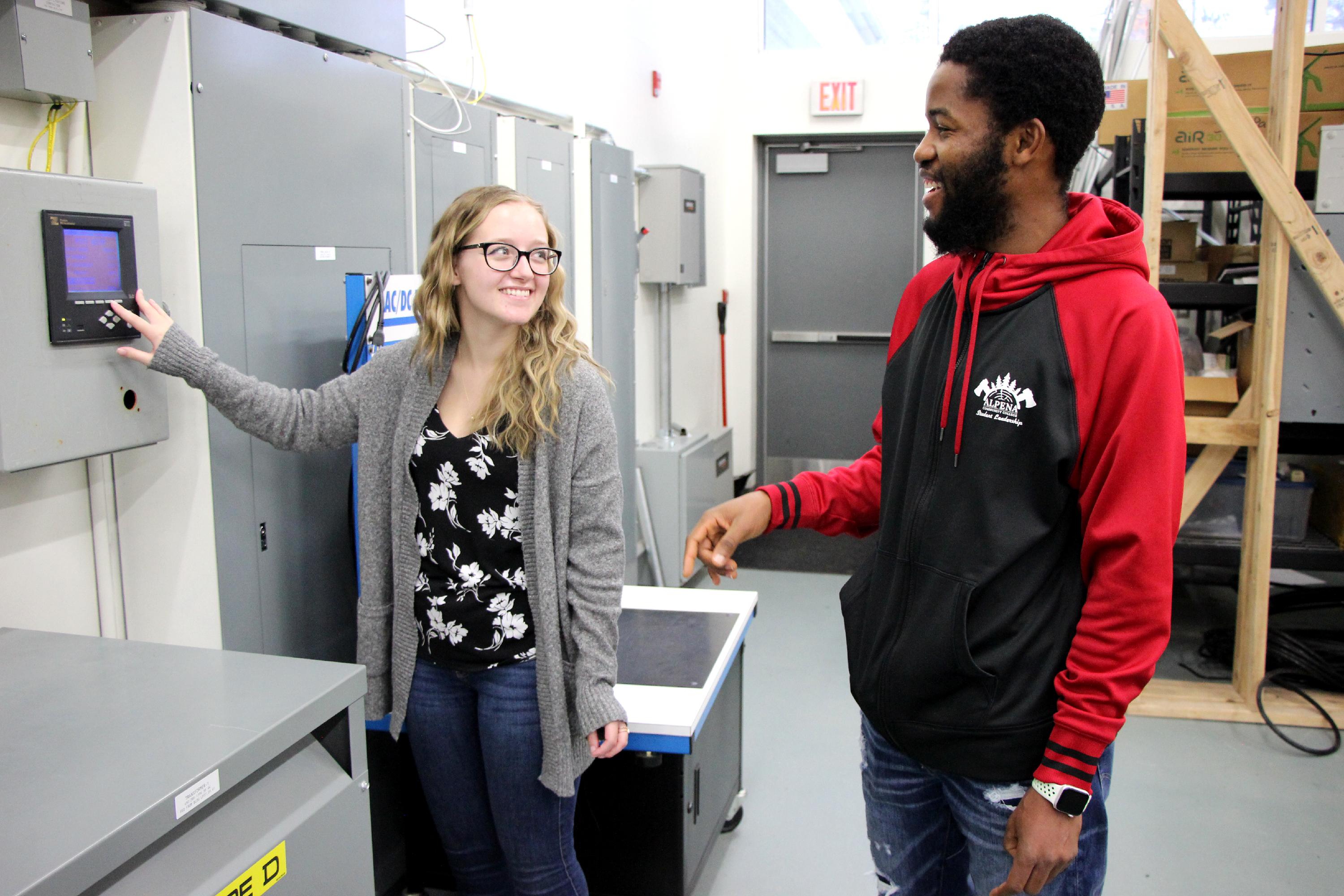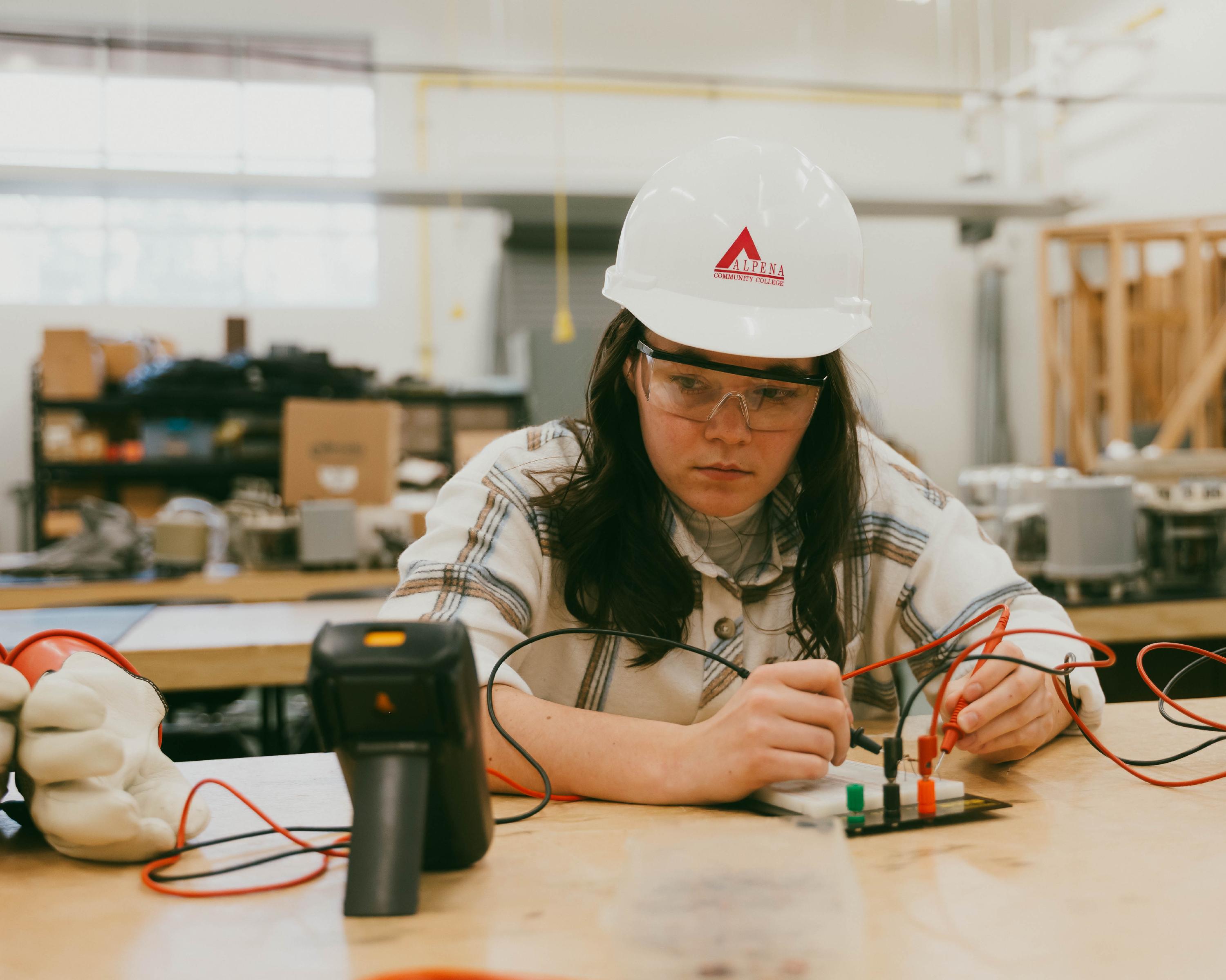Powering the Future — A Look into the Electrical Systems Technology Bachelor’s Degree
Many challenges face the electrical power industry today. Are there enough resources to generate energy to meet demands? Can this goal be achieved through clean energy? There is not only pressure on the industry to conserve existing energy resources and develop new sources; it must accomplish this in the face of an aging workforce that will need to be replaced.
 The Electrical Systems Technology program at ACC is designed to train individuals to install, modify, maintain, troubleshoot, and perform functional tests on electrical grid systems for employment in the fields of electric distribution, transmission, and generation. Students with an engineering mentality for designing and troubleshooting systems and those who are interested in computers will enjoy this program.
The Electrical Systems Technology program at ACC is designed to train individuals to install, modify, maintain, troubleshoot, and perform functional tests on electrical grid systems for employment in the fields of electric distribution, transmission, and generation. Students with an engineering mentality for designing and troubleshooting systems and those who are interested in computers will enjoy this program.
ACC created this program in 2016 as a way of bridging the gap between the utility technology field and the engineering field. Students who graduate from this program will be qualified to work at utility companies serving in roles that support the engineers, such as substation technician, relay technician, and many other technical roles. At $325 a credit hour, students can earn their degree for far less than it would cost at a four-year university.
Musa Kabbah, a Liberian native who found a second home in Alpena, graduated from the program in May 2022. Kabbah initially came to the Alpena area in 2015 as a foreign exchange student, and he immediately fell in love with the area and the kindness of everyone he met. He knew he wanted to enter the electrical field, so when he found out that ACC had a bachelor’s degree in Electrical Systems Technology, it was almost like fate was drawing him back to the area. Musa’s long-term goal is to get a master’s degree in either Power Systems or Renewable Energy Engineering. He plans to use what he has learned to fulfill his lifelong goal of helping to generate and distribute stable electricity to his home country of Liberia, where only 12% of the population has access to electricity. “Mr. Lewis and the other instructors in the program are the best at doing their job,” said Musa. “I can guarantee you that you will never regret enrolling in the EST program.”
Adrianna Sola, an Onaway native who graduated in December 2021, loved the program and her instructors. “I can’t pick one favorite thing from the program when there is so much to love. I have met some of the greatest people — students and teachers — during my time here, and my classes with Mr. Lewis are a personal favorite of mine. He is easily the best teacher at ACC, and I have learned so much from him.” She believes the hands-on experience and supportive environment were key factors in her success. “I would recommend this program to anyone with a passion for math and a drive to get into the utility field without having to become a lineman.”
About the Program
Program Curriculum
This Bachelor of Science degree program is designed to
train individuals to install, modify, maintain, troubleshoot,
and perform functional tests on electrical grid systems
equipment for employment in the fields of electric
distribution, transmission, and generation. This includes
grounding grids, power transformers, circuit breakers,
lightning arresters, switches, and various protective
relay equipment, including electromechanical and
microprocessor-based hardware.
Tuition & Fees
Students can earn their Bachelor’s Degree at a much lower cost at ACC! Tuition for courses in the 100 & 200 levels of the EST program is charged at the current tuition rates, while tuition for the 300 & 400 levels of the program is just $325 per contact hour*. Compared to a four-year university, students can save thousands of dollars on their education.
* Tuition rate effective as of April 2025, subject to change.
Career Options
New technologies are being developed to generate, deliver, and use electricity; utilities are undertaking new environmental initiatives to meet and exceed customer expectations; and public power systems are becoming fast-paced public enterprises with competitive salaries. Many dynamic career opportunities are available for those in the field of electrical systems technology. The Bureau of Labor Statistics data shows in May 2024, workers classified as Power Distributors and Dispatchers earned an average salary of $103,600**.
Other career options include:
- AMI Technician/Systems Operator
- Dispatch Technician (Dispatcher)
- Engineering Technician
- Mapping/GIS Technician
- Meter Technician
- Power Generation Technician
- Relay Technician
- Renewable Energy Technician
- SCADA Technician/Systems Operator
- Staking Technician (Staker)
- Utility Technician
** Bureau of Labor Statistics, U.S. Department of Labor, Occupational Outlook Handbook, on the Internet at http://www.bls.gov/ooh (visited April 23, 2025).
Contact the Program AdvisorWesley Repke
Electrical Systems Technology Advisor
989.358.7363
repkew@alpenacc.edu

